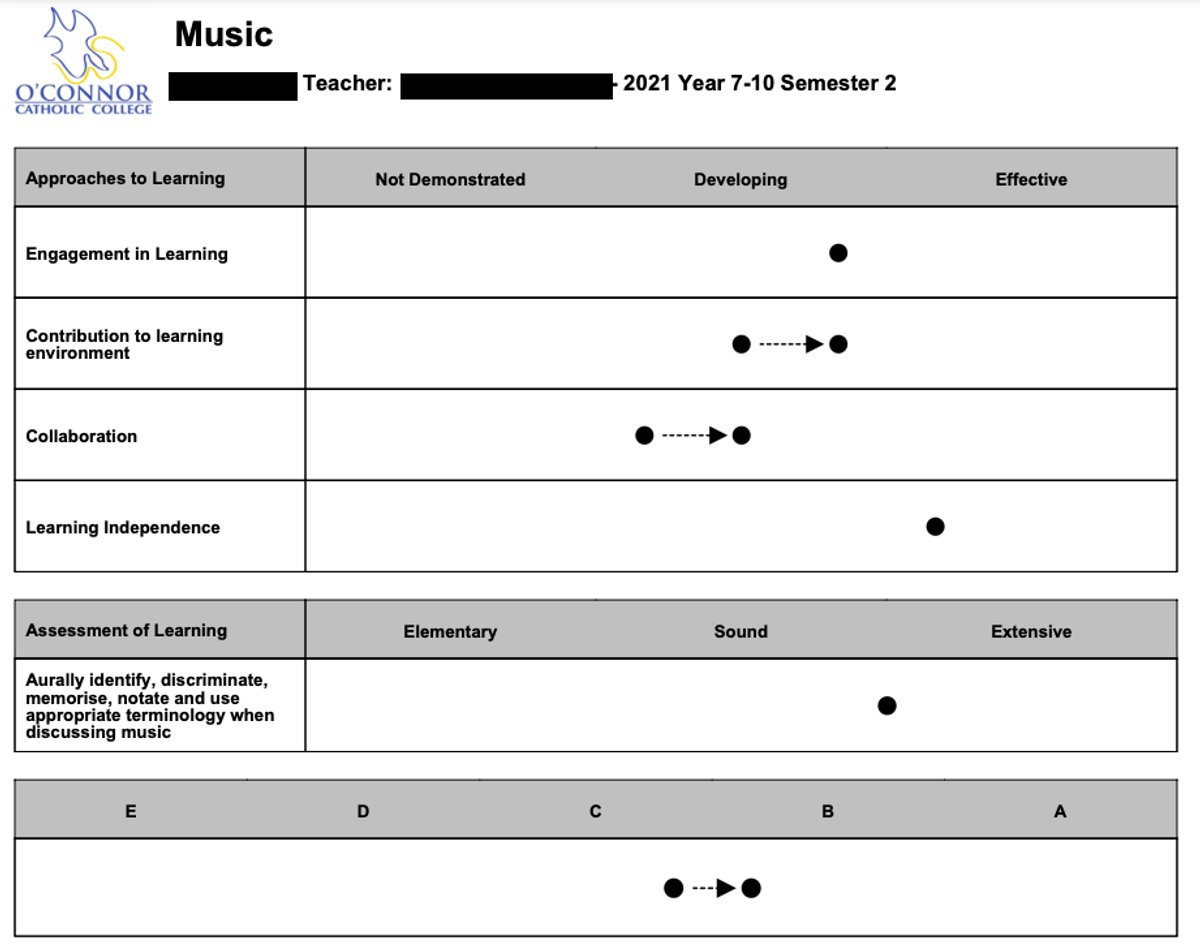Assistant Principal / Leader of Pedagogy
Mr Stephen Chapman

Assistant Principal / Leader of Pedagogy
Mr Stephen Chapman
Reports: A time to talk
All students in Year 7 to 10 should receive their Semester 2 Academic Report next Friday (Week 9) via Compass. In this newsletter article, I’m going to suggest some ways to use the report at home to help each young person to improve and move their learning forward.
Firstly, I understand that this report comes at the end of the school year. So, it’s too late for the feedback to be useful, right? Wrong! No way! All of us are lifelong learners. Young people and adults. We need to take notice of ANY feedback we get so we can improve. That’s what people with a growth mindset think. Reflecting on 2021 and setting some goals for the future can only be a good thing.
So how can families use the reports we send home to have meaningful discussions?
Most importantly, read the report together. That might mean the young person sits down with 2 parents, 1 parent, 2 guardians, grandparents, foster parents, or any combination of adults. The important thing is that you use the opportunity to talk as a team. Read the reports from each subject. Ask your child about the outcomes (Assessment of Learning) section. Can they explain what they were learning in each of those areas?
Look at the Approaches to Learning dots at the top. This semester we have added a fourth approach to learning: Engagement in Learning. These four descriptors give a snapshot of how your child is working in each class. If it’s positive, ask them what they are doing in class and congratulate them on this. Praise process, not results. This is one of the best ways to develop a growth mindset in people. If the dots indicate that improvement in the classroom is needed, discuss how to move towards this.
In these Semester 2 reports, teachers had the choice to put an arrow on to indicate improvement from the Semester 1 report. The dot to the right (end) of the arrow is the dot for Semester 2. Of course, this arrow is only possible if the element on the left side is the same for both reports. If there is an arrow going up to the dot for this report (to the right), this means the student has improved in that descriptor since the Semester 1 report. Discuss these arrows with your child. Can they articulate why the arrow is there?


Image: A sample Semester 2 report. The arrows show improvement from the Semester 1 report
Next, look at the dot point comments from each teacher. The first ones describe what the student is able to demonstrate. The second ones are where the teacher is giving advice on how the students can move their learning forward. Ask your child if they understand each dash point comment. What is the teacher trying to say? How can they put the feedback the teacher is providing into practice? Also, see if there are similarities between the dot points for different subjects.


Image: A sample of report comments
What about the final grade? Is it important? I realise that most students and parents/caregivers look at the dot at the bottom to see what grade has been given for each subject. It’s human nature to want to know. The problem is if students see their learning as all coming down to a single final grade, they are missing the big picture. What grade they have isn’t important. What is important is that they keep learning, keep improving. To be honest, I would prefer the grade wasn’t on the report. The only reason the overall grade is at the bottom of each subject report is that the Australian Government says it’s compulsory. If you talk to your child and decide together that they want to move their C to a B in English next year, for example, and then they work with their teacher to move their learning forward in that way, that’s great. But labelling a student with a certain grade on its own is not helpful. I realise that some people struggle with this idea. If you would like to read a quick, targeted article about why grades don’t help students learn, read 3 reasons grades are bad for education.
This opportunity to discuss your child's learning with them is too good to give up. Ask them about their learning this year. What have they enjoyed learning about? What are they proud of? Is there anything they struggled with?
At the end of the discussion, students need to reflect on their learning this year. What worked for them? What didn’t work? What goals can they set for themselves in 2021? This can be a good time to make some plans for learning during the summer holidays. Try something new. It might not be the kind of learning mentioned in the report but learning a new skill to use around the home. I’ll write more about this next newsletter, the last one for the year.
Resources
3 reasons grades are bad for education. Thnk (n.d.).
Retrieved from: https://www.thnk.org/blog/3-reasons-grades-bad-education/
Mr Stephen Chapman
Assistant Principal - Leader of Pedagogy
Never stop learning; for when we stop learning, we stop growing - Jack Lewman

